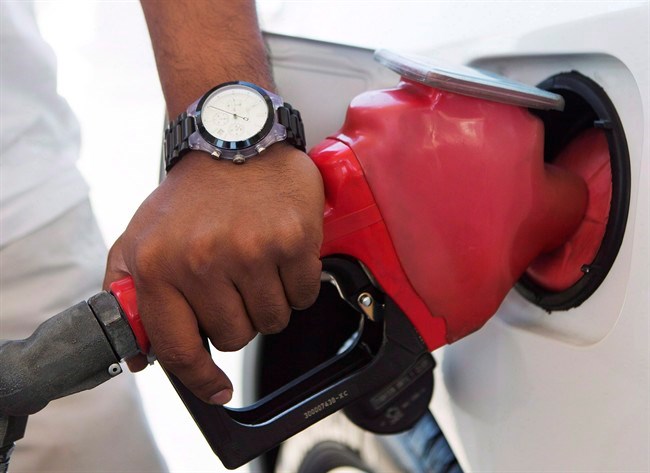While the spike in gas prices could lead to more “gas and dash” thefts, police say such incidents are entirely preventable by forcing customers to pay before filling up.
During the recent Board of Police Commissioners meeting, Commissioner Mary Lee Booth pointed out that property thefts under $5,000 had increased year-over-year to 207 incidents from 171 incidents between January and April. She wondered if that was because of shoplifting or if motorists were stealing petrol.
“We anticipate it (fuel thefts) will increase. We are hearing from other jurisdictions that they’re seeing significant increases in fuel thefts,” said Police Chief Rick Bourassa. “We haven’t yet seen that here. But sometimes, our data is a little bit behind when we’re presenting (the monthly statistical extract) … .
“We expect it to be an increase because the cost has gone so high.”
Moose Jaw may not be experiencing an increase in fuel thefts yet, but RCMP is seeing a spike in the rural areas, said Supt. Devon Oleniuk. However, with the cost of fuel likely to go higher, “it would be foolish not to expect” the same thing here.
Stealing gas is entirely preventable by having service stations institute pre-pay before drivers fill up, said Deputy Chief Rick Johns. Many service stations have already changed to this approach and seen success in reducing gas thefts.
“It is a balancing act because some service stations still want to offer that service, where they fill up (the vehicles) while customers shop in a store,” he added.
Cost of fuel
The cost of gasoline has affected the police service’s operating budget since the organization had budgeted for $1.25 per litre this year but is now paying almost $2 per litre, Bourassa said. The police service will track that closely, although there isn’t much it can do about it.
“We have to continue to do things,” he added.
Finance officer Lisa Renwick agreed with the chief’s comments, pointing out that gas expenses are high because police cruisers are on patrol 24 hours a day, seven days a week.
Vehicle maintenance costs are also increasing because of supply chain issues and difficulty finding parts, Bourassa said. The police service will monitor that situation and attempt to forecast how 2023 could look while creating next year’s budget.
“It’s pretty tumultuous right now. It’s going to be difficult for us to predict with a lot of accuracy,” he added.
For 2022 the police service had budgeted $220,000 for vehicle maintenance. As of April, it had spent $98,680.42 to upkeep vehicles.
Impaired driving
In early April, the Moose Jaw Police Service teamed up with SGI and MADD Canada to participate in the Report Impaired Driving (RID) campaign, which sees signs posted around the community whenever police catch impaired motorists.
During the police board meeting, Commission Mary Lee Booth mentioned how she was noticing more signs around the community.
“I really appreciate that because it does make you stop and go, ‘Oh!,” she said.
“We really hope to not put those signs up because we really hope there aren’t impaired drivers, but we know there are, and so we will see more of those signs shortly,” Bourassa said, noting impaired driving could be by alcohol or drugs.
He added that effective traffic safety focuses on four elements — education, enforcement, engineering and evaluation — as a holistic way of dealing with the situation.
In Norway, when police arrest people for impaired driving, not only does the driver lose his or her licence, but so does everyone in the vehicle, said Commissioner Doug Blanc. He thought such a move here would cut down on impaired driving.
“There are some very interesting ways of managing traffic in different places,” replied Bourassa, noting that in Norway, offenders also pay fines based on their income versus a standard fine. “(So), if you’re speeding on the highway in your Lamborghini, you could get a $200,000 fine.”
The next Board of Police Commissioners meeting is Thursday, June 9.




